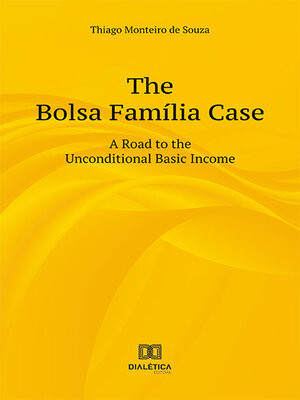
Sign up to save your library
With an OverDrive account, you can save your favorite libraries for at-a-glance information about availability. Find out more about OverDrive accounts.
Find this title in Libby, the library reading app by OverDrive.



Search for a digital library with this title
Title found at these libraries:
| Loading... |
The theory of the Unconditional Basic Income (UBI) has been debated for centuries. However, one of the major obstacles to the implementation of the UBI is lack of empirical testing. Conditional Cash Transfer (CCT) programs that resemble the UBI, to a certain degree, as is the case of the Bolsa Família (BF), have also been implemented. This project is internationally considered as an example of success in combating historical poverty and inequality in Brazil. Observing what lessons may be learned from the Brazilian experience, the present work thus aims to analyze the Bolsa Família program so that contributions to current UBI studies may also be considered. To achieve this end, based on the theoretical foundations of the UBI, some central topics are addressed, namely: (i) Freedom, (ii) Labor, (iii) Politics and (iv) Feminism. Subsequently, the present study focuses on the Bolsa Família experience, narrating the genesis of the program, as well as its implementation and evolution over the years, which makes it possible to look into how the Brazilian socioeconomic indexes have been affected since the creation of this Income Transfer policy. Without intending to be an end in itself, the present work aims to engage and encourage the debate on setting up a functional and improved UBI project.






